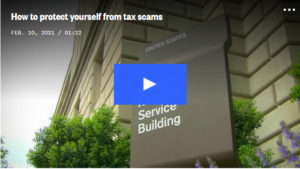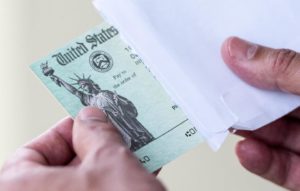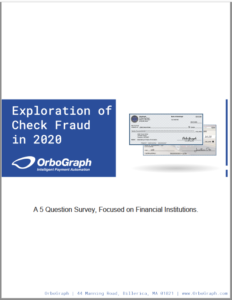Blog Post
We are pleased to announce that the Fraud Detection section of #OrboZone is now live! Banks and financial institutions have many tools at their disposal for fighting financial crime. The OrboZone is designed to point fraud specialists to high impact resources with an immersive experience. For example, Artificial Intelligence & Deep Learning can be applied to detect fraudulent attacks and protect customers funds like never before.
Read MoreHere’s a jarring and somewhat novel experience: You go to your mailbox and find IRS Form 1099-G waiting for you — you know, the form you get when you’ve been collecting unemployment. But you haven’t been collecting unemployment… According to NBC News, millions of Americans are receiving 1009-G IRS Tax forms for unemployment benefits for which they never applied — resulting in a conservative estimate of over $36B in losses, with a significant portion from fraud.
Read MoreDigital Transactions took a look at data from credit-reporting agency TransUnion LLC and determined that the shift to digital payment methods brought on by COVID-19 concerns fueled a concurrent rapid rise in fraud and identity theft though those channels. In other words, a pandemic became endemic to fraud.
Read MoreThis comes as no surprise to anyone involved with financial institutions — a new round of stimulus checks has spurred a new round of fraud. The Better Business Bureau has already received reports of con artists asking individuals to provide personal information in order to receive their stimulus funds. WWMT in Michigan points out, for instance, that scammers were contacting people through text messages, e-mail, and robocalls about the new COVID-19 stimulus checks and direct deposits.
Read MoreBEC, or business email compromise, is a species of scam that has been around for as long as businesses have used email. However, the sharp spike in remote working arrangements (including permanent changes to remote work) spurred by the COVID-19 pandemic has made it a much more tempting (and fruitful) target for scamsters. Attackers are taking advantage of the new need for off-site communications from employee home networks to their employers’ corporate networks.
Read MoreAs 2021 gets underway — already fairly eventfully — Trace Fooshee of Aite Group talks to BankInfo Security’s Nick Holland about what fraud trends they foresee in the coming year. Mr. Fooshee notes that, early in the pandemic, FI consensus was to gird themselves for a significant rise in across-the-board fraud activity. However, the industry was somewhat surprised to see that conventional fraud — debit fraud, check fraud, etc. — did not spike all at once.
Read MoreIt was suspected cockfighting that got the attention of authorities at first. However, they found a wider spectrum of crime when they arrived at the home of this alleged perpetrator: “When MDPD arrived, they found evidence that made plain the home also doubled as the headquarters for a second illegal business: counterfeit check cashing,” U.S. prosecutors wrote in a court filing.
Read MoreCraigslist can be a handy resource for buying and selling goods and services — and it is also a very popular vehicle for scammers deploying simple check fraud tactics. On YouTube, Traveling Director demonstrated a common Craigslist scam by offering some furniture for sale. His asking price was $300, but he had “buyers” consistently send checks for much, much larger amounts of money. It’s interesting to see the range of quality in the forgeries — a couple of the checks he received are downright amateurish.
Read MoreWe have to admit feeling a bit of satisfaction when seeing a scammer get scammed. That’s why this YouTube video is so entertaining. Wanting to document a step-by-step scam — and trip up the scammer at the same time — YouTuber Ben Taylor, whose channel is called Pleasant Green, is known for scam-baiting and scam-foiling. He tried to be voluntarily sucked into a classic “job posted on the internet” scam after hearing about a friend-of-a-friend being entangled.
Read MoreOrboGraph’s Exploration of Check Fraud in 2020 is a compendium of data gathered from a short, focused survey which was designed to “take a snapshot” of check fraud trends for 2020.
Read More








